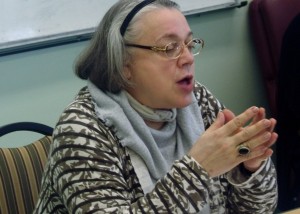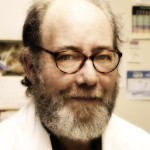There are only but a few thought leaders in the field of classical Chinese medicine that are as regarded as Elisabeth Rochat de la Vallée. And while the fact that she’s French might surprise you, it’s her European origin that has played a large role in her ability to expertly navigate the nuances and cultural context of classical Chinese medicine and sinology.
In whichever part of the world Rochat de la Vallée teaches a seminar – and there are many – you can expect the classroom to be full to the last seat. Acupuncturists from all stretches of the globe clamber to learn from this internationally recognized scholar who has written over 20 books on classical Chinese medicine, philosophy and language.
Beginnings in the 1970s
Rochat de la Vallée studied literature, philosophy, Chinese language, and Chinese medicine in Paris and Taiwan in the early 1970s. Beginning in 1976, she collaborated with scholars Father Claude Larre and Dr. Jean Schatz on publications on Chinese philosophy and classical Chinese medical texts.
Today, Rochat de la Vallée is an editorial board senior member for the Grand Ricci, a comprehensive French dictionary of Chinese language; dean of study in the European School of Acupuncture; lecturer on Chinese philosophy in the Jesuit University in Paris; member of the French Association of Chinese Studies; and member of the European Association of Chinese Studies.
Rochat de la Vallée Comes to Emperor’sCollege
Emperor’s College of Traditional Oriental Medicine was honored to host Rochat de la Vallée in November 2012 with a 2-day seminar on classical Chinese medicine. We asked seminar participants what makes learning from this acclaimed scholar so special. Here is what they had to say:
David Chan, LAc, senior faculty at Emperor’s College:
Elisabeth’s experience of more than 40 years in classical Chinese scholarship, translation and medical philosophy is a rare and specialized skill that few posses, not even native Mandarin speakers. There really is no one else like her in our field today.
When Elisabeth describes the centuries-long evolution of thought process in Chinese philosophy and culture, she puts you in the mindset of the era. She understands and explains the constructs so thoroughly that you can experience the developmental process. Her command of the classics is unparalleled. She always seems to have a quote at hand that perfectly illustrates a difficult concept such that you feel you are within the historical framework, watching it unfold.
How will you apply what you’ve learned in the classes you teach and your clinical practice?
When you truly internalize the lessons of the medicine you become part of the medicine, not just a practitioner utilizing a new treatment technique or point formula. So increasing your depth of knowledge and appreciation of the roots of the medicine makes you a more refined and empowered practitioner. Self-cultivation and deepened understanding is really the end result of Elisabeth’s teachings. I believe it will make me a better vessel for expressing the medicine.
Douglas Eisenstark, LAc, clinical faculty at Emperor’s College:
Elisabeth Rochat de la Vallée is someone we don’t often see in our professional schools; she is unique in her high level academic and theoretical understanding of Chinese medical philosophy. In particular, she conveys tremendous insight, analysis and precision in the translation of Chinese medical texts through her deep understanding of the language, the culture and its history.
She stresses that the deep meaning of Chinese medical terms cannot be found in their English (or French) translations, but only through full examination of their cultural, historical and philosophical implications. I also found her in-depth explanation of the seven emotions of classical Chinese medicine incredibly clinically useful.
What is the most important lesson that other practitioners can learn from Elisabeth Rochat de la Vallee?
I think many acupuncturists get enamored by new concepts and extrapolations of Chinese medicine while deviating too far from the core roots of the medicine. Elisabeth’s teachings bring us back to the fundamental concepts that inform our clinical process.
Keri Uejo Marchand, 4th Year master’s student at Emperor’s College:
Any person – student, clinician, patient or layperson – who seeks a deeper and broader inquiry into the roots of “dis–ease” can find inspiration from the vast mastery of Chinese medical philosophy taught by Elisabeth Rochat de la Vallée. Whether you read her books, or attend her professional lectures, Elisabeth fully embodies and transmits the “spirit of medicine”.
She shines a much-needed light onto the interplay of the vital forces of human nature that we often find perplexing. Her marvelous sense of humor and openhearted way of connecting to every individual promises a room full of smiles and laughter, and a beautiful experience to all.


